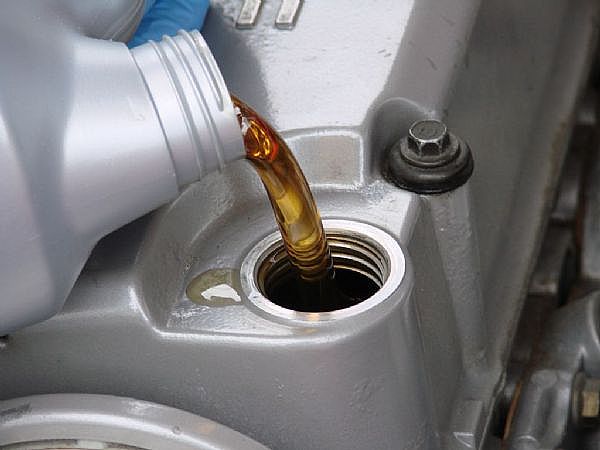It has long been believed that to keep your vehicle running and in good health, you should change the oil once every 3,000 miles. This was once an accurate rule of thumb to follow. However, this automotive motto has not been accurate for over a decade now.
There have been vast improvements in oil chemistry and engine technology that allows most vehicles to go several thousand miles further than previously believed. A better average nowadays would be between 7,500 and 10,000 miles depending on the type of vehicle and its use.

Benefits Of Fewer Oil Changes
The benefits to be found with changing your oil less are two-fold. On the one hand, it will help to save you a few extra bucks, even upwards of a hundred dollars a year. This is especially true for those that do not change the oil in their vehicles themselves, and have it serviced by either a dealership or independent mechanic.
On the other hand, fewer oil changes puts less strain on our environment. The need for new oil is lessened while the amount of waste produced that has to be managed is mitigated. There is no reason to throw out good oil, it’s essentially throwing away money.
Follow Your Owners Manual
The specific type of driving being done with that vehicle dictates the frequency at which your oil should be changed. It all depends if there is a lot of stop and go driving, long or short distances, extended idling, the temperature the vehicle operates in, humid or dry driving conditions, muddy or dusty roads. Really there are many factors.
Be sure to consult your vehicles owner manual to determine exactly how often your oil should be changed based on the severity of your driving type. You may believe that your 10-minute commute to work every day is not difficult on your vehicle. But that is considered a severe condition, as that drive did not allow enough time for the engine and oil to warm up. If the oil is still cool, it will not be able to properly absorb the contaminants that arise from the internal combustion process.
Many people also do not understand that as you drive, your oil is not “used up” in the sense. It doesn’t disappear as gasoline does after its use. As you drive, the oil becomes dirty from absorbing the engines contaminants. The longer you drive with the same oil, the dirtier that oil becomes. Until it is no longer able to absorb properly, and rather, begins to make dirt rather than clean.
Maintenance Reminders
Many vehicles nowadays have maintenance reminders, which Is essentially a light on the dashboard that informs the driver on the useful life remaining for the oil. This system will allow the driver to know how much time they should go without having to worry about changing the vehicles oil.
These systems are useful as people, at times, do not trust their judgment when it comes to vehicles as they have little to no experience with repairing or maintaining them. So they generally trusted mechanics and the 3,000-mile rule of thumb to avoid any complications. But drivers can trust their vehicles systems to let them know when an oil change need occur.
Dishonest Mechanics
There is always the fear that a mechanic will lie simply to sell more. Which is strange as the 3,000-mile rule has not been true for over a decade now. Yet they continue to put the stickers in your window saying every 3,000-miles or 3 months an oil change is needed. But this is not true, and they all know it to not be true. But it’s a way to get you back into the garage, charge the $20 or $30 and perhaps find something else that needs attention. A new air filter perhaps, hoses or gaskets even.
Now this isn’t to imply that all mechanics are crooked, but there is certainly a fair share of them. So if your mechanic offers up that same suggestion, be sure to ask them why, as many times they will falter in their answer. Which will also signal a larger issue with using their services. Dishonesty is just that, even if it’s only for that $30 oil change every few months.
The author of this article is Damien S. Wilhelmi, an SEO white-hat agent, and content marketing guru. If you enjoyed this article, you can follow me on twitter @JakabokBotch. I am writing on behalf of AAMCO Colorado, who are indeed honest mechanics, and offer free transmission checks for those in need.
The 3,000-Mile Oil Change Myth

